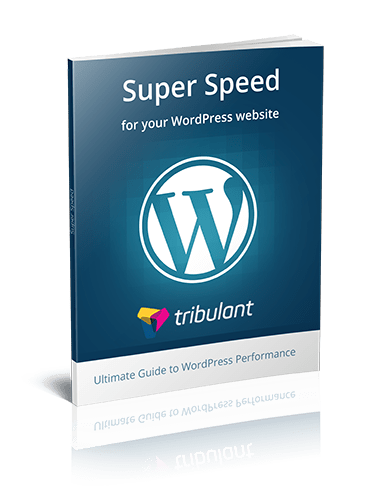
What is the difference between website and web application?

Most people use the term “website” to describe any Internet platform. However, few of them know that technically, a good share of these platforms are not websites but web applications. Do you wonder what’s the difference? Well, for regular Internet users, there is not much difference between a site and an app, as they don’t care how it works. They just want to be sure its content and functionality meet their expectations. Meanwhile, web developers make a clear distinction between the two terms.
Being a business owner, you must understand what kind of product you need to promote your company online. Firstly, this understanding will help you explain to developers what result you expect. Secondly, in a long-term perspective, you will know how you can further upgrade and develop your online platform. Keep on reading to learn what the difference between a web app and a website is and how you can make use of both. Also, read more about the basics of web design.
Website vs Web App: Understanding the Difference
Though the line between a website and a web app can seem rather delicate, each type has some specific features that help identify it. Let’s compare the two products to find out these features.
Website Features
A traditional website is an Internet page or several linked pages that are made to deliver information to users. In other words, this is a place where you can read texts, look at pictures or watch movies. However, you can’t do anything else with this page – it is static and unchangeable. You can’t post comments, load files or input other types of data. Sometimes, websites offer a subscription form, but no other interactive features are available.
Examples of websites include news sites, weather forecast sites, landing pages, online business cards, and blogs. They can be different in terms of the type of content offered but they have one common feature – minimum or no interaction with users.

Web App Features
As you could guess, a web app is a dynamic Internet page that can be changed by users in real-time, thanks to multiple interactive features. A shining example of a web app is a social media site where every user can modify pages by posting comments, photos, videos, sharing or deleting content. Other examples are numerous online editors where one can add and process various files. To put it simply, any web-based platform where you can manipulate or modify content should be referred to as a web application.
At the same time, many existing platforms have features of both websites and web apps. For example, access to interactive features is provided to registered users only, while non-registered users see a static page of a typical website. In the framework of this particular article, we are not going to discuss these minor differences in detail. We’ll adhere to a general classification.

Website & Web App Development: an Overview of the Technologies Used
From the point of view of a regular user, websites and web apps are different in terms of their features. For those engaged in web app development, the key difference is in the set of tools needed for their creation
Website Development
Simple websites – single-page, landing pages – are created with a minimal number of tools. If a unique design is needed, a developer can use HTML and CSS. However, commonly, a small website is built around a single CMS. The entire process, in this case, takes no more than 1-2 days. Moreover, one doesn’t need to be an IT-specialist to create a typical one-pager. You can do it without a development team.
Larger website creation requires more time and effort but the developer tools used are the same. London is known for its vibrant tech scene, attracting numerous web design companies that offer a wide range of services to meet a variety of business needs. When building larger websites, these companies spend more time and effort to deliver a comprehensive and polished end product.
Web App Development
A web application has a more complicated structure if compared to a website. You’ll hardly build a high-quality web application using a ready-made template or CMS. Developing a custom interactive interface is a time-consuming task that requires the involvement of skilled specialists. A range of developer tools that are commonly used for building web apps is rather wide. For example, popular backend developer tools are PHP, Node.JS, .Net and others. React.JS, Angular.JS, and some other frameworks are used for frontend development.
It goes without saying that a web app is more expensive than a website but it is worthy of it. Once investing in a well-designed application, you’ll get a powerful and flexible tool with almost unlimited possibilities of further improvement and upgrading. It’s important to make your app compatible with mobile devices, as it will boost its popularity and convenience.
Web App or Website: What Should I Choose for My Business?
Choosing the right type of online platform for your company is easy when you know for sure what and why you want to get from it. That is why setting correct goals is the first thing you need to think of. Finding answers to the following questions will help you outline your requirements.

- Do you need to interact with your existing and prospective clients? If all you need is to deliver information without getting any feedback than a website will do for you. However, if you want users to interact with you online in any way, a web app is the right choice. Of course, you can’t foresee everything: small companies tend to grow into large businesses, and your methods of work can change one day. Try to think of various scenarios and discuss them with a developer at the stage of planning.
- Will you take responsibility for your client’s personal information? Unlike websites, web apps process user personal data, including their logins, passwords, and financial details. As an app owner, you must inform your customers about the terms of data collecting, customer data analysis, processing, and storage. Also, you must be sure that you can guarantee a due level of security.
- Can you guarantee a high-security level? This issue arises from the previous one. If you are going to deal with user data of any type, you must ensure its reliable protection. This is of particular importance for those dealing with banking and financial data storage and processing.
- What protocols and certificates do you need to comply with? Though experienced developers keep an eye on all up-to-date regulations, you’d make an in-depth study of the issue in advance just to make sure you didn’t miss anything. One of the most important documents to follow is the General Data Protection Regulation but there can also be acts that are specific for your business sphere.
As you see, choosing a proper type of web platform is crucial for your business. It will help you make the most of the online presence of your company. Set your goals correctly to decide what kind of software is best for your company.
Vitaly Kuprenko is a technical writer at Cleveroad. It is a software development company located in Eastern Europe. His mission is to provide people with interesting material about innovations in the world of IT.
Website & Email Hosting
Get the best website & email hosting for speed, security, and peace of mind. No restrictions. Freedom to do what you need in order to run your business.




No comments yet